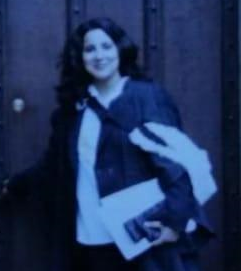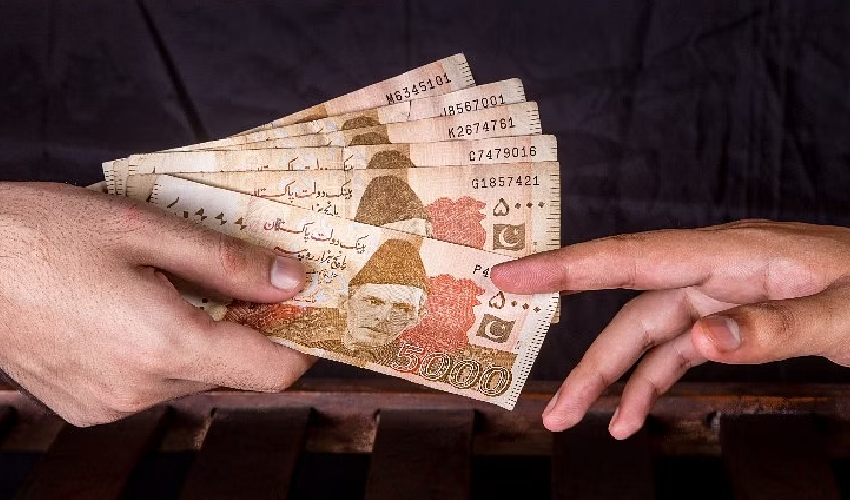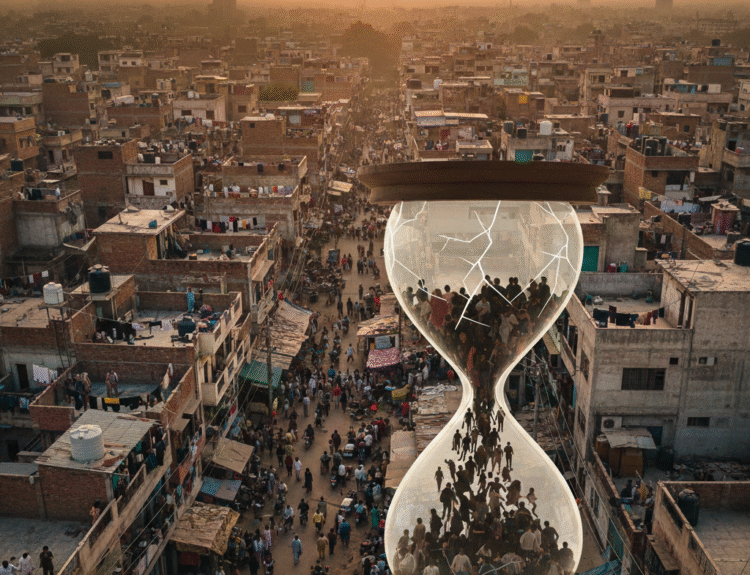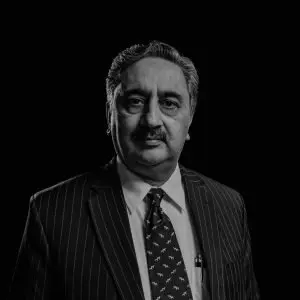
Corruption in Pakistan is rife and for those who live here, a part of life. They get used to it – and many – not all thankfully – are almost obliged to engage in it but the endemic nature is corrosive to any country. Corruption erodes trust, weakens institutions, societal functioning, prevents justice and hampers economic development.
When I arrived in Pakistan on 17th March 2022 on hearing about my brother Farooq’s death, I was incredibly naive. I still have echoes of Pakistani incredulity when I recounted my interactions with Islamabad police – “you trusted them?!” They would look at me in consternation and disbelief. Did someone really come to Pakistan and put their trust in the police officers? Could anyone be that naïve?
And the short answer is yes. I was 21 years old when I first visited Pakistan. During the summer break at Cambridge University, I spent six weeks in Islamabad at a local hospital. I had a good experience overall and the only “bad” one, I’d shrugged off. For me, it was an important journey – like Farooq, I felt a need to return “home.” My parents’ consternation was apparent: “you don’t understand Pakistan. You don’t understand how Pakistan works.” It was an oft repeated phrase. I objected to it then but now concede they had a valid point – corruption is so deep-seated in Pakistan that if I now come across an honest transaction, I’m shocked! And that is truly a sorry state of affairs.
I recall meeting SP City Kamran Aamir Khan on 25th April 2022 to request an FIR which he refused – a decision criticised by the Honourable Humayan Dilawar. SP Kamran called me a “foreigner.” I was incensed that day – my brother was a Patriot who returned to Pakistan but now we were foreigners? It’s taken me perhaps two years to admit – he was right. I was a “foreigner” and am probably still a “foreigner.” I grew up in the UK. I was brought up in a Muslim household where Truth was important – it was something my parents especially my Father instilled in us. And Farooq (whose name derives from the Arabic Al-Faruq “the one who distinguishes between right and wrong”) was a stickler. Farooq insisted on the truth. Even “little white lies” were abhorrent to him. By all means, he said, dodge the question but never lie because it corrodes the soul. And that is the Islamic way of thinking. Some of my other traits are so obviously “British” – facts are important to me, courtesy is a necessity and not reneging on a commitment. That’s not to say there are no crooks in the UK (there are many especially in the infiltrated ruling class) but there is a general “acceptable” behaviour and when someone deviates, it is frowned upon not shrugged off.
When it comes to UK police, they too have innumerable failings. They’re also corrupt – they’ll lie, they’ll cover-up mistakes, they’ll falsify records and they have ghastly Chief Superintendents and public officials like the Mayor Tracy Brabin and MPs like Richard Burgon and Naz Shah refusing to hold them to account. Some officers are bribed by drugs and indeed, many recruited have criminal records themselves. They tend not, however, to request bank notes under the desk. But seeing corruption elsewhere should not make Pakistanis complacent – because UK police don’t claim to be Muslim.
Rishwat is practised openly by Islamabad police. How is it that after 2 years – and believe me I have met many – I say there is not one good Muslim ICT police officer? On Saturday 19th March 2022, one day after I had buried my brother, we went to meet with SHO Qurban Ali Anwer at Police Secretariat in G-5. He admitted the forensic samples which he had told me two days earlier would be sent for analysis to Lahore were still in the office of Tariq Mehmood, the Investigating Officer, and not even refrigerated to preserve them. He said “we don’t have a fridge”. I lost my temper “I would have bought you a fridge” I raged. He then promised that they would be sent immediately to Lahore – a lie. I was told after this meeting that he hadn’t been requesting a fridge – it was “Pakistani-speak” for a bribe. Clearly his hint had been lost on me.
It doesn’t end there. When my first lawyer wanted to get copies of a few police documents, 15 000Rs was needed to bribe the same police officers – I received a mere 4 pieces of paper. The foreigner wouldn’t know any better. Akram Nagra, told us that it would take 10 days to get six signatures from the Ministry of Interior for the exhumation – my sister and I got them in half a day. Again, we hadn’t understood the “rishwat language” – he could have worked faster (rather than play games on his mobile) had we incentivised him sufficiently. All three officers are currently on trial at the Sessions court for their complicity in my brother’s murder at Ramada by Wyndham.
One of the Accused had failed to show up in court since December. He was the person who served the poisoned milk to Farooq. In March, his representative claimed not to know where he was – prompting my Lawyer to ask Judge Sikander why and how he could still represent a missing man? It was clear that the defence was lying to the court.
At the last hearing we were informed that this Accused had been found and arrested the previous evening. The usual procedure was that he would be presented in handcuffs before the Judge. As Judge Sikander was absent, once the formalities at his court were completed, the prisoner would be taken instead to the Duty Judge. The Reader then checked how many other Accused attended – the Owner and Manager were again absent along with Abbas Gul without explanation.
We decided to wait for the arrested prisoner although the police officers were keen to see us leave saying “You don’t need to wait,” “it’s only a formality” and “it may be a long wait.” We now expect tricks from these ICT crooks. So whilst we waited we saw two large groups of prisoners, all chained, being brought into the court room and their paperwork processed by the Reader. They would have travelled in the police van from the custody cells. At about 11am, two officers came in but without the Accused – they wanted the paperwork “to get him released.” The Reader refused to simply hand them the court file. Another officer now alerted his colleagues that Farooq’s family were watching them. I told the Reader that “you have a court process to follow so where is the Accused?” – it turned out he was waiting outside. It didn’t look like he’d travelled in any police van. One of the police officers – a very fat pot-bellied man called Ghafoor – said “we are releasing him today.” Remember this decision was meant to be made by the Duty Judge. The paperwork was delivered to the Duty Court and eventually we were called. It was quite a sight to behold. The Defence lawyer had disappeared but the Accused had nothing to fear – police officer Ghafoor argued magnificently for him. The rishwat was deservedly earned after that performance!
The Duty Judge said she would await an application for the release of the Accused – it is not clear to me who wrote that application. It is normally a lawyer. Once again, Ghafoor was on hand to help his benefactors. As we left, the Accused’s uncle was huddled together with the police officers.
In a Muslim – or supposedly Muslim – country our standards should be higher. A true Believer abhors corruption. I’m not sure most Pakistanis understand that corruption is not some minor misdemeanour but is actually a sin in Islam. If they did, they wouldn’t practise it so widely.
Several verses in the Qur’an deal with it specifically such as Surah Al-Qasas “But seek, through that which Allah has given you, the home of the Hereafter; and [yet], do not forget your share of the world. And do good as Allah has done good to you. And desire not corruption in the land. Indeed, Allah does not like corrupters.”
There are Hadiths reporting the Prophet’s (PBUH) hatred for corruption. His Kuthbas to his followers included warnings against corruption, which he said would destroy the human soul and prevent entry to Jannat.
Bribery influences people to make corrupt decisions to protect someone or those who may have bribed them. The Islamic scholar Ibn Maajah defined bribery as “a major sin” because the Prophet (PBUH) said: “May the curse of Allah be upon the one who pays a bribe and the one who takes it.” Note well that it is not just the one who takes it, but the ones who also gives it – so when an officer demands it, it should be refused. It is incumbent upon all of us to refuse to be party to the rishwat system. How can any system change if we all partake in it?
Surah Al-A’raf (The Heights) further warned Believers to do the right thing: “And to [the people of] Madyan [We sent] their brother Shu’ayb. He said, ‘O my people, worship Allah; … and do not deprive people of their due and cause not corruption upon the earth…” Being a Muslim does not stop at the Kalima or blindly praying 5 times a day but rather a true Believer strives to abstain from all conducts of corruption and injustice.
I should emphasise that corruption in the Qur’an is equated to “Jarimah Hirabah” that is, waging war against the Muslim Ummah, an offence which is punishable by death, crucifixion, corporal punishment or isolation (Surah Al-Maidah). Now just imagine what heights Pakistan would reach if all the crooks were rightly executed. Given the strength of Sharia law, you can surely understand why the crooks have a preference for a British legal system.
—–
Dr Rehiana Ali is a Cambridge-educated Consultant Neurologist and has a PhD from Imperial College London. Her beloved brother Farooq, a Biochemistry postgraduate of Imperial College London, was a Patriotic Pakistani-Kashmiri and a freelance journalist and political intellectual. He was allegedly assassinated at Ramada by Wyndham on 11 – 12th March 2022 – the case is currently at the Sessions Court in West Islamabad. The social media campaign led by her sister Yasmin can be followed @Justice4Farooq
——-
Views expressed in this Op-ed and following reader comments do not necessarily reflect the views and policies of the TLTP.




